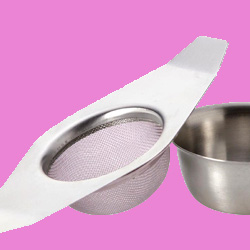Quality Of Water

The quality of water used to brew tea is just as important as the quality of the tea leaves themselves. Water plays a crucial role in extracting the flavour, aroma, and health benefits of tea. Therefore, it is essential to understand the importance of good water quality when making tea.
The first and foremost aspect of water quality is its purity. Water that contains impurities such as chemicals, minerals, and bacteria can significantly affect the taste and quality of brewed tea. Chlorine, for example, is often added to tap water to kill bacteria but can leave a residual taste in tea, giving it a chemical or medicinal flavour. Hard water, which is high in minerals such as calcium and magnesium, can create a mineral build-up on the surface of tea leaves, making it difficult for the tea to infuse properly. This can lead to an astringent or bitter taste in the tea. Furthermore, impure water can alter the colour of tea, making it look dull and unappetizing.
Another crucial aspect of water quality is its temperature. The temperature of the water used to brew tea affects the rate of infusion and the resulting flavour. The ideal temperature for brewing tea varies depending on the type of tea. For example, green tea requires lower water temperatures of around 70°C to 80°C to prevent the leaves from burning and releasing bitter compounds. In contrast, black tea requires higher water temperatures of around 90°C to 100°C to release its full flavour and aroma. Therefore, it is crucial to use water at the appropriate temperature for the specific type of tea being brewed.
The pH level of water is another important aspect of water quality that affects the flavour and quality of tea. The pH scale measures the acidity or alkalinity of water, with a pH of 7 considered neutral. The ideal pH range for brewing tea is between 6.5 and 8.5, with most tea types preferring slightly acidic water with a pH between 6.5 and 7.5. Water that is too alkaline or acidic can affect the solubility of compounds in tea, altering its flavour and colour.
Moreover, the mineral content of water plays a significant role in the taste and quality of tea. Minerals such as calcium, magnesium, and potassium are essential for health but can also affect the flavour of brewed tea. Water with a high mineral content can produce a harsh or bitter taste in tea, while water with low mineral content can result in a flat or dull flavour. The ideal mineral content for brewing tea is between 50 and 150 parts per million (ppm), with a balance of minerals that complements the specific type of tea.
Furthermore, the presence of dissolved oxygen in water affects the taste and aroma of brewed tea. Oxygen is necessary to release the full flavour and aroma of tea leaves during infusion. Water that has been sitting for too long or has been boiled for an extended period can lose its oxygen content, resulting in a flat or stale taste in tea.
In addition to affecting the flavour and quality of brewed tea, water quality also impacts the health benefits of tea. Tea is rich in antioxidants, polyphenols, and other beneficial compounds that help to protect against various health conditions, such as heart disease, cancer, and diabetes. However, these compounds can be altered or diminished by impurities or chemical additives in water. Therefore, it is crucial to use pure and clean water when brewing tea to ensure that its health benefits are not compromised.
In conclusion, water quality plays a vital role in brewing the perfect cup of tea. Using pure, clean, and appropriately mineralized water at the right temperature and pH level can enhance the flavour, aroma, and health benefits of tea. Therefore, it is essential to pay attention to water quality when making tea and to choose the best water source available to ensure.





